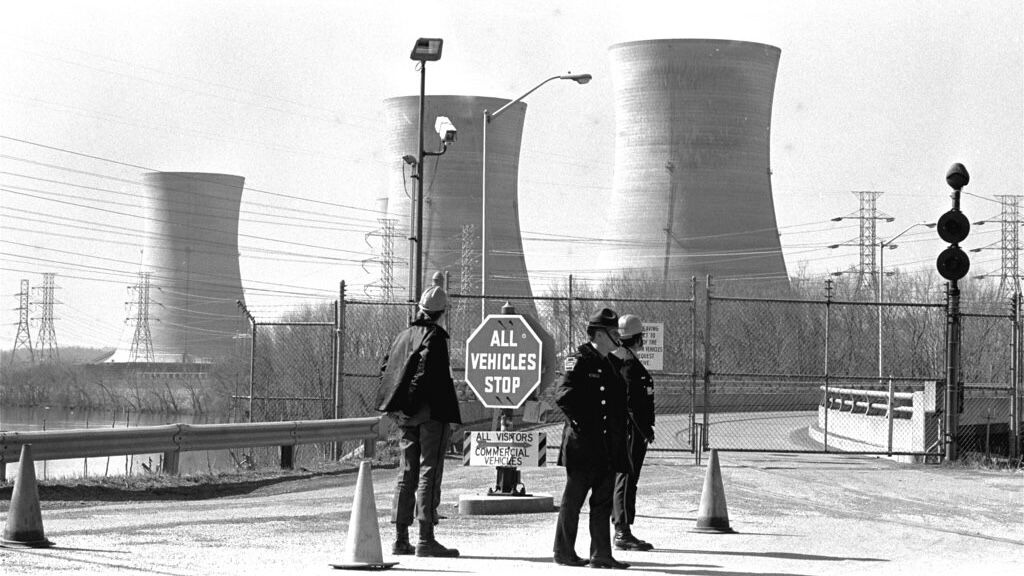Constellation Energy announced Friday that it plans to restart one of the reactors at Three Mile Island, a nuclear power plant that had a partial meltdown in 1979 but was safely generating electricity in its unaffected reactor before financial issues prompted its shut down in 2019.
“Powering industries critical to our nation’s global economic and technological competitiveness, including data centers, requires an abundance of energy that is carbon-free and reliable every hour of every day, and nuclear plants are the only energy source that can consistently deliver on that promise,” Constellation Energy President and CEO Joe Dominguez said in a statement.
Microsoft said Friday it has signed a 20-year agreement to purchase power from the plant, which will be known as the Crane Clean Energy Center. The Seattle-based technology giant plans to use electricity from the Londonderry, Penn., facility to power its datacenters.
“This agreement is a major milestone in Microsoft’s efforts to help decarbonize the grid in support of our commitment to become carbon negative,” Microsoft Vice President of Energy Bobby Hollis said in a statement. “Microsoft continues to collaborate with energy provides to develop carbon-free energy sources to help met the grids’ capacity and reliability needs.”
Nuclear power is a cornerstone of the Biden administration’s climate policy, which has set a goal of 100% clean electricity generation by 2035.
It's the second U.S. nuclear plant to announce it will reopen operations. Earlier this year, the Department of Energy loaned $1.5 billion to restart the Palisades nuclear power plant in Michigan, which had also shuttered for economic reasons. The energy company Holtec International bought the decommissioned plant in 2022 and plans to restore it and resume operations by 2025. If successful, the Michigan plant will be the first nuclear power plant to be successfully restarted in U.S. history.
U.S. Energy Secretary Jennifer M. Granholm has said nuclear power is the country’s single largest source of carbon-free electricity.
The nuclear reactor Constellation Energy plans to restart is next to the one that was shut down in 1979 following the meltdown, which is still in the process of being decommissioned. The new Crane Clean Energy Center, known as Unit 1, is independent from the one that malfunctioned, known as Unit 2.
Before restarting Constellation Energy will need approval from the U.S. Nuclear Regulatory Commission, as well as local and state agencies.
If approved, the energy center is expected to begin producing electricity in 2028. The nuclear plant is expected to add $16 billion to the state’s gross domestic product and generate at least $3 billion in state and federal taxes, according to a study from the Brattle Group.
“Under the careful watch of state and federal authorities, the Crane Clean Energy Center will safely utilize existing infrastructure to sustain and expand nuclear power in the Commonwealth while creating thousands of energy jobs and strengthening Pennsylvania’s legacy as a national energy leader,” said Pennsylvania Gov. Josh Shapiro.
Pennsylvania is the second largest producer of natural gas after Texas, providing 6% of the country’s total electricity generation.
Electricity demand is expected to increase 1.4% annually through 2032, according to Morningstar. Much of the demand will come from economic growth and the electrification of vehicles and buildings. Morning expects carbon-free energy produced from renewables such as wind and solar, as well as nuclear and hydro power, to make up 66% of the U.S. electricity supply by 2032.



